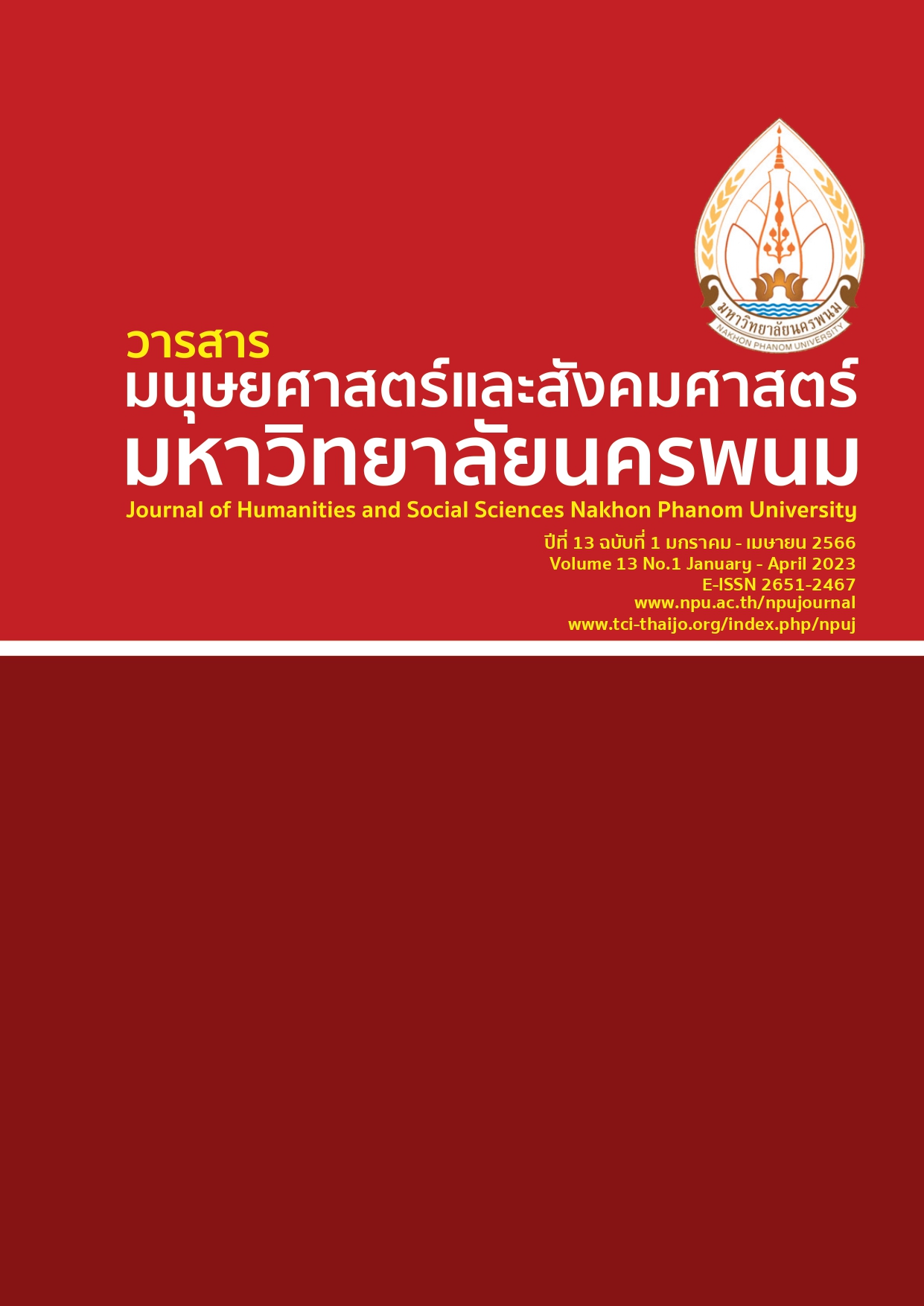Attention Deficit Hyperactivity Disorder in students: The role of teachers and guidelines for helping in schools.
Main Article Content
Abstract
The role of teacher in helping solving problems in learning; If the cause can be identified and corrected in the right way, it will enable the child to learn to their full potential and suitable for ADHD. schools should foster a good relationship between teachers and children. Creating a friendly learning environment being a role model in respect for humanity. Appreciation in the effort to change knowing how to appreciate the good rather than the teacher's watchdog. But if you leave it alone, it can have a huge impact as well, as concentration is an important factor in your learning and daily life.
Article Details

This work is licensed under a Creative Commons Attribution-NonCommercial-NoDerivatives 4.0 International License.
References
Boonsit, W. (2017). Rōk samāthi san : kān winitchai læ raksā [Attention deficit hyperactivity disorder: diagnosis and treatment]. Journal of the Psychiatric Association of Thailand 2012. 57(4),378-386.
Institute for Population and Social Research Mahidol University (2017). Prachākō̜n khō̜ng prathēt Thai Phō̜.Sō̜. sō̜ngphanhārō̜ihoksipʻet [Population of Thailand, 2018]. Retrieved April 2020, from : http://www.ipsr.mahidol.ac.th/ipsrbeta/th/gazette.aspx.
Nuchanat, B. (2018). Phatthanākān khō̜ng dek wai rīan hok - sipsō̜ng pī [Development of children ages 6-12 years]. Retrieved June 2020, from: https://www.gotoknow.org/posts/ 305008.
Pittayaratsathien, N. et al. (2020). Khunnasombat khō̜ng bǣp khat krō̜ng rōk samāthi san chư̄ SNAP-IV læ SDQ sūan thī kīeokhō̜ng kap phrưttikam yū mai ning - samāthi san (SDQ-ADHD) chabap phāsā Thai [Characteristics of the SNAP-IV and SDQ screening patterns for attention -deficit hyperactivity disorder (SDQ-ADHD), Thai version]. Journal of the Psychiatric Association of Thailand. 59(2),97-110.
Pornnopadol C., et al. (2018). Kānphatthanā bǣp khat krō̜ng rōk samāthi san nai dek læ wairun Thai ʻāyura wāng sām - sippǣt pī [Development of a screening test for attention deficit hyperactivity disorder in Thai children and adolescents aged 3-18 years]. Journal of the Psychiatric Association of Thailand. 59(4),335-340.
Rajanagarindra Institute of Child Development. (2017). Khūmư̄ khwāmrū khwāmkhaočhai kīeokap rōk samāthi san læ botbāt khō̜ng khrū nai kāndūlǣ dek thī mī ʻākān samāthi san [A Cognitive Guide on Attention Deficit Hyperactivity Disorder and the role of teachers in caring for children with ADHD]. Bangkok : Siam Print nana Co., Ltd.
Rajanukul Institute. (2019). Dek samāthi san khūmư̄ samrap khrū [ADHD children. Teacher's Manual]. Bangkok : Printing House Agricultural Cooperative Society of Thailand Limited.
Singsathorn, D., Permsirivanich, W. and Suksong, w. (2020). Phon khō̜ng kān songsœ̄m phatthanākān dek samāthi san dūai thēkniksanōsī len nai rōngphayābān somdetphrabō̜romrātchathēwī Na sī rāchā [Effects of Development Promotion Based on Snoezelen Techniques in Attention-deficit Hyperactivity Disorder (ADHD) Child, Queen Savang Vadhana Memorial Hospital]. Journal of Phrapokklao Nursing College. 31(1),117-128.
Siriratrekha, T. (2018). Samāthi san [ADHD]. Retrieved June 2018, from: http://www.happyhomeclinic.com/ sp03-adhd.htm
Suriphon, P. et al. (2019). Rāingān wičhai rư̄ang kānchai sư̄ theknōlōyī kap rōk samāthi san nai nakrīan chāi chan prathomsưksā tō̜n ton [Research report on the use of media technology and attention deficit hyperactivity disorder. in male students Elementary School]. Bangkok : Faculty of Public Health Mahidol University .
Tang-aree-arun, D. and Pornnoppadol, C. (2020). Khwām chuk patčhai thī kīeokhō̜ng læ kān sūnsīa nāthī khō̜ng phāwa tit kēm nai dek læ wairun thī pen rōk samāthi san [Prevalence, associated factors, and function impairment of IGD in children and adolescents with ADHD]. Journal of Mental Health of Thailand. 29(2),93-104.
Wirasakarun, T. and Wanwichaim, R. (2019). Kān prap phrưttikam kān yū mai ningkhō̜ng dek samāthi san ʻāyu hā hok pī dōi kitčhakam kānprayukchai hun sāi sēmā rōngrīan ʻanubān čharœ̄n phong Krung Thēp Mahā Nakhō̜n [Title Behavior Modification for Children with ADHD Aged Five to six years with Semathai Marionettes at Charoenpong Kindergarten Bangkok]. Veridian E-Journal, Silpakorn University. 11(1),448–461.
Witsanuyothin, T. et al. (2018). Khwām chuk rōk samāthi san nai prathēt Thai [The Prevalence of ADHD in Thailand]. Journal of the Psychiatric Association of Thailand. 21(2),66–75.
ADHD Institute. (2018). Burden of ADHD 2018. Retrieved June 2020, from: http://adhd-institute.com/ burden-of-adhd/impact-of-adhd/social-impact/.
Faraone, S.V, Schachar R.J., Barkley R.A., Nullmeier, R. and Sallee F.R. (2017). Early morning functional impairments in stimulant treated children with attention-deficit/hyperactivity disorder versus controls: impact on the family. Journal Child Adolesc Psychopharmacol. 27(8),715-722.
Harpin, V.A. (2017). The effect of ADHD on the life of an individual, their family, and community from preschool to adult life. Archives of Disease in Childhood. 90,i2-i7.
Owens, E.B., Zalecki, C., Gillette, P. and Hinshaw, S.P. (2017). Girls with childhood ADHD as adults: Cross-domain outcomes by diagnostic persistence. J Consult Clin Psychol. 85(7),723-736.
Pan, P.Y. and Yeh C.B. (2017). Impact of depressive/anxiety symptoms on the quality of life of adolescents with ADHD: a community-based 1-year prospective follow-up study. Eur Child Adolesc Psychiatry. 26(6),659-667.
Piyasil, V. and Katumarn P. (2018). Textbook of child and adolescent psychiatry (2nd ed). Bangkok : Tana Press.
Polanczyk, G., de Lima, MS., Horta, BL., Biederman, J. and Rohde, LA. (2018). The worldwide prevalence of ADHD : a systematic review and metaregression analysis. The American Journal of Psychiatry. 164(6),942-948.
Puthisri, S. and Yingsaree, S. (2017). The prevalence of psychiatric disorders. Journal of the Psychiatric Association of Thailand. 49,213-222.
Wang B.Q., Yao N.Q., Zhou X., Liu J. and Lv Z.T. (2017). The association between attention deficit/ hyperactivity disorder and internet addiction: a systematic review and meta-analysis. BMC Psychiatry. 17(1),260. doi:10.1186/s12888-017-1408-x.


